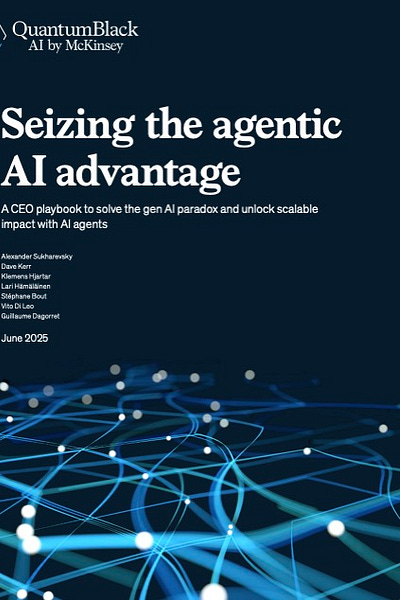Humbled by Hype: 80% Use GenAI—80% Still No Profit
Contrary to consultants' predictions, GenAI has a long hard road ahead.
This is my daily post. I write daily but send my newsletter to your email only on Sundays. Go HERE to see my past newsletters.
HAND-CURATED FOR YOU
McKinsey claims that there is a “GenAI paradox,” as its latest GenAI survey shows that 80% of companies have deployed it, but 80% see no material impact on earnings.
There is no paradox, just a consultant who believed its own hype when it assured clients that GenAI would be easy to implement and is still unhumbled by the experience.
It’s not that McKinsey and others were wrong in declaring GenAI and now agentics as transformational technologies. They most certainly are and will eventually be profitable. McKinsey, however, continues to underestimate the difficulty of putting GenAI into production and remains pig headedly dedicated to telling clients that they are doing it wrong.
McKinsey’s thesis is that companies have not deployed GenAI in higher-value “vertical use cases” that are embedded into specific business functions and processes.
However, McKinsey refuses to acknowledge that by pushing GenAI up the value chain, it makes it exponentially more difficult for it to perform these high-value tasks. Making the work harder doesn’t guarantee that GenAI can do it!
That GenAI can handle “horizontal enterprise-wide” use cases, such as employee copilots and chatbots, is no guarantee that it can handle more complex tasks.
McKinsey's blaming technical, organizational, data, and cultural barriers for GenAI’s inability to perform at complex high-value tasks is disingenuous.
This doesn’t mean that AI won’t eventually deliver, it most certainly will, but it will take more work to get there than McKinsey’s hype first claimed.
👉GenAI takeaways with my comments:
🔹 Nearly eight in ten companies have deployed gen AI in some form, but roughly the same percentage report no material impact on earnings.² We call this the “gen AI paradox.”
👉 There is no “GenAI Paradox.” McKinsey continues to grossly underestimate the difficulty in rolling out production GenAI systems to its clients’ detriment.
🔹 The main issue is an imbalance between “horizontal” and “vertical” use cases. The former, such as employee copilots and chatbots, have been widely deployed but deliver diffuse benefits, while higher-impact vertical, or function-specific, use cases seldom make it out of the pilot phase because of technical, organizational, data, and cultural barriers.
👉 Higher-value GenAI use exponentially increases the knowledge it requires. Blaming cultural barriers for GenAI’s inherent shortcomings is simply wrong.
🔹 Unless companies address these barriers, the transformational promise of gen AI will remain largely untapped.
👉 Rather than blame the client, McKinsey should admit that GenAI was harder to implement than early hype would have us believe






